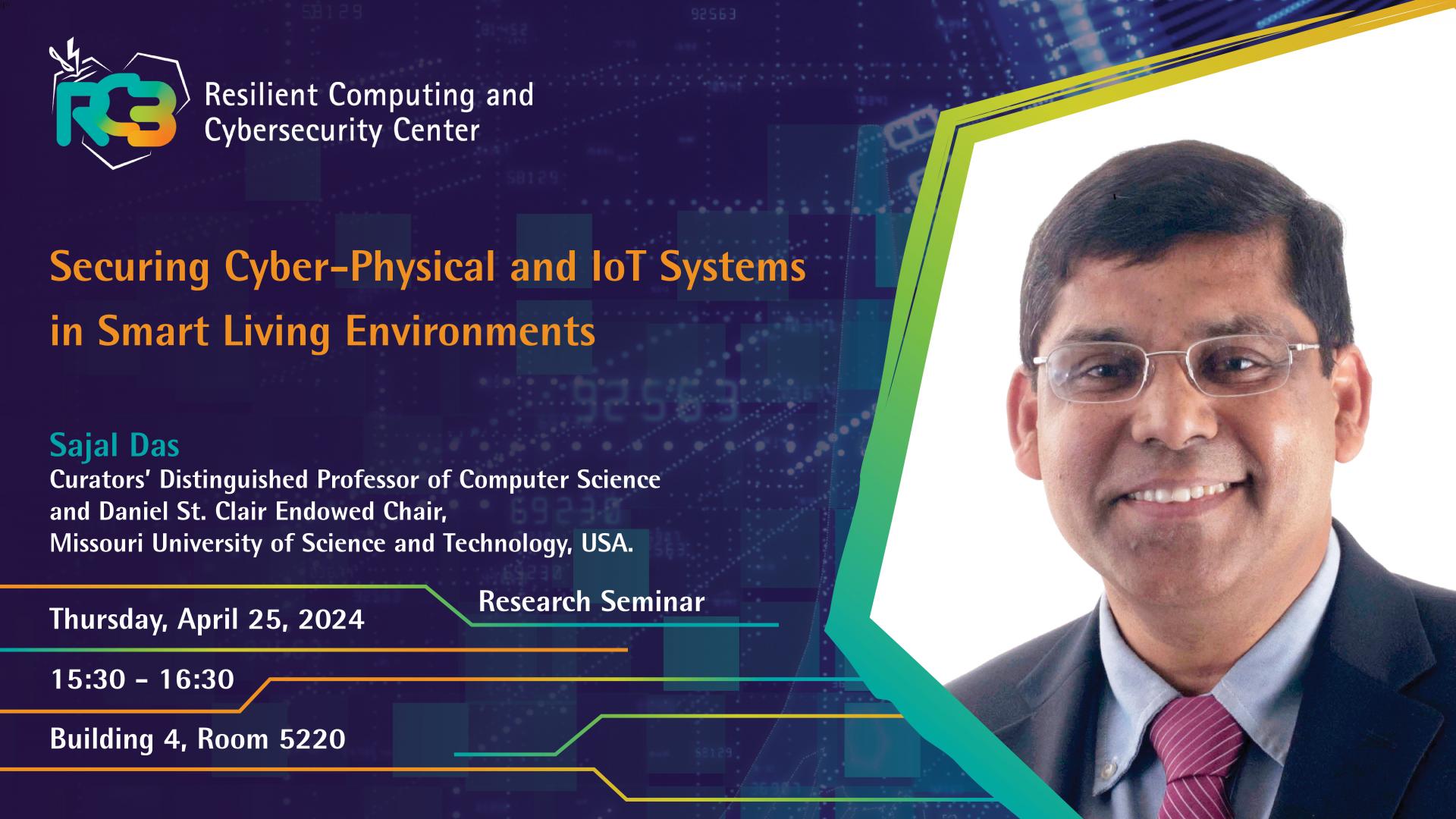Abstract
Our daily lives are becoming increasingly dependent on smart cyber-physical infrastructures, such as smart homes and cities, smart grid, smart transportation, smart healthcare, smart agriculture, and so on. The wide availability of sensor enabled IoT devices and smartphones are also empowering us with fine-grained data collection and opinion gathering via mobile crowdsensing about events of interest, resulting in actionable inferences and decisions. This synergy has led to cyber-physical-human (CPH) convergence in smart living environments, the goal of which is to improve the quality of life. However, CPH and IoT systems are extremely vulnerable to security threats owing to their interdependence, scale, heterogeneity, human behavior, and trust issues. This talk will highlight unique security challenges in smart living environments, build a unified data falsification threat (anomaly detection) landscape for CPH and IoT systems, and propose novel defense mechanisms for securing such systems. Our solutions are based on a rich set of theoretical and practical design principles, including AI/ML, data analytics, sensor fusion, uncertainty reasoning, information theory, prospect theory, and reputation/belief models. Case studies with real-world datasets will be presented to defend smart grid, smart transportation and smart water distribution networks. The talk will be concluded with future research directions.
Brief Biography
Professor Sajal K. Das is a Curators’ Distinguished Professor of Computer Science and Daniel St. Clair Endowed Chair at Missouri University of Science and Technology, USA where he was the Chair of Computer Science Department during 2013-2017. Previously, he served the National Science Foundation (NSF) as a Program Director in the Computer and Network Systems Division. His interdisciplinary research interests include cyber-physical systems, IoT, drones, cybersecurity, machine learning, data science, wireless and sensor networks, mobile and pervasive computing, smart environments, edge/cloud computing, and applied graph theory. He has contributed significantly to these areas and published extensively (more than 600 apers) in high quality journals and peer-reviewed conference proceedings, 59 book chapters, and 4 books. A holder of 5 US patents, Dr. Das has directed numerous funded projects over $23 million. According to Google Scholar, his h-index is 99 with more than 41,450 citations. He is the founding Editor-in-Chief of Elsevier’s Pervasive and Mobile Computing journal and serves as an Associate Editor of the IEEE Transactions on Dependable and Secure Computing, IEEE Transactions on Mobile Computing, IEEE Transactions on Sustainable Computing, ACM/IEEE Transactions on Networking, ACM Transactions on Sensor Networks, and Journal of Paralel and Distributed Computing. Afounder of IEEE PerCom, IEEE WoWMoM, IEEE SMARTCOMP, and ACM ICDCN conferences, he served as the General and Technical Program Chair of numerous conferences. He is a recipient of 12 Best Paper Awards at prestigious conferences, such as ACM MobiCom and IEEE PerCom, and numerous awards for teaching, mentoring and research including the IEEE Computer Society’s Technical Achievement award for pioneering contributions to sensor networks, and the University of Missouri System President’s Award for Sustained Career Excellence. He graduated 11 postdoctoral fellows, 50 PhD and 31 MS thesis students. Dr. Das is a Distinguished Alumnus of the Indian Institute of Science, Bangalore, and a Fellow of the IEEE, National Academy of Inventors (NAI), and Asia-Pacific Artificial Intelligence Association (AAIA).
